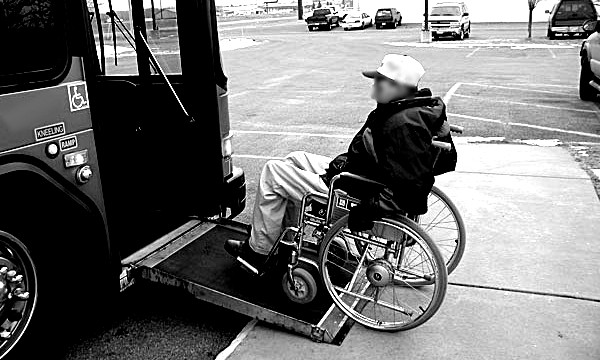Download a copy of the recent decision in Malik Ubaidullah v Government of Punjab (2020) here: c.p._140_l_2015
“Our Constitution, as a whole, does not distinguish between a person with or without disabilities. It recognizes inherent dignity of a human being, equal and inalienable rights of all the people as the foundation of freedom, justice and peace. Every person is entitled to all the rights and freedoms set forth therein, without distinction of any kind. Our Constitution embodies universality, indivisibility, interdependence and interrelatedness of all human rights and fundamental freedoms. It applies equally to persons with disabilities, guaranteeing them full enjoyment of their fundamental rights without discrimination. The triangular construct of the right to life, dignity and equality under the Constitution provides a robust platform for mainstreaming persons with disabilities.”
[Hafiz Junaid Mahmood v. Government of Punjab, PLD 2017 Lahore 1, para 17 per Chief Justice Syed Mansoor Ali Shah]
When our Constitution does not distinguish between a person with or without disabilities, how can insensitive words like “disabled”, “physically handicapped” and “mentally retarded” form part of the law?[1]
With this in mind, a public interest petition was filed before the Lahore High Court to challenge the constitutionality of the offensive words employed in the Disabled Persons (Employment and Rehabilitation) Ordinance 1981 for being violative of the fundamental rights to life, dignity and equality.[2]
This public interest petition was allowed by the Lahore High Court in the case of Barrister Asfandyar Khan v. Government of Punjab, PLD 2018 Lahore 300.
The then Chief Justice Syed Mansoor Ali Shah declared the words “disabled”, “physically handicapped” and “mentally retarded” as violative of Articles 9, 14 and 25 of the Constitution and hence unconstitutional and illegal.[3]
Additionally, the federal government, as well as the Government of Punjab, had been directed to discontinue the use of such words in official correspondence, directives, notifications and circulars and instead use the terms “persons with disabilities” or “persons with different abilities”.[4] The Ministry of Parliamentary Affairs, Islamabad was also directed to ensure the reprint of the Ordinance in compliance with this judgment.[5]
To date, these directions of the Lahore High Court have not been implemented. Neither has an appropriately worded reprint of the Disabled Persons (Employment and Rehabilitation) Ordinance 1981 been issued nor have the unconstitutional words been discontinued in official correspondence, directives, notifications and circulars.
The Supreme Court of Pakistan has also approved and endorsed the Barrister Asfandyar Khan case in two of its recent judgments:
- In the case of Malik Ubaidullah v. Government of Punjab (2020), where speaking for the court, Justice Syed Mansoor Ali Shah held the following:
“…. words like “disabled,” “physically handicapped” and “mentally retarded” deeply bruise and offend human dignity of persons with different abilities. The Federal Government and the Provincial Governments are directed to discontinue the use of these words in official correspondence, directives, notifications and circulars and shift to “persons with disabilities” or “persons with different abilities”. The view taken by the Lahore High Court in Barrister Asfandyar Khan case25 [PLD 2018 Lahore 300] is approved and must be given effect to.”[6]
- In the case of Beena v. Raj Muhammad (2020), where speaking for the court, Justice Qazi Faez Isa held the following:
“…. We endorse and approve his lordship’s [the then Chief Justice Syed Mansoor Ali Shah in Barrister Asfandyar Khan case] observations that pejorative words, like crippled or disabled, ‘seriously offend the right to be a person thereby infringing constitutional guarantees like right to life, right to human dignity and right to non-discrimination of persons with disabilities, thereby violating Articles 9, 14 and 25 of the Constitution’.”[7]
It is, therefore, imperative to discontinue the insensitive words for persons with different abilities in Pakistan. It is the duty of the federal and provincial governments to lead by example so that the citizens are educated regarding this significant issue involving human dignity. We must also never forget what Allah says in the Holy Quran:
“O you who have believed, let not a people ridicule [another] people; perhaps they may be better than them; nor let women ridicule [other] women; perhaps they may be better than them. And do not insult one another and do not call each other by [offensive] nicknames….”
[Holy Quran, Sura Al-Hujurat, Ch. 49: verse 11][8]
References
[1] Disabled Persons (Employment and Rehabilitation) Ordinance, 1981
[2] See Arts. 9, 14 and 25 of the Constitution
[3] See para 19 of the Barrister Asfandyar Khan case
[4] See para 20 of the Barrister Asfandyar Khan case
[5] See para 21 of the Barrister Asfandyar Khan case
[6] See para 19 of the Malik Ubadullah case
[7] See para 10 of the Beena case
[8] English Translation by Sahih International
Download a copy of the recent decision in Malik Ubaidullah v Government of Punjab (2020) here: c.p._140_l_2015
The views expressed in this article are those of the author and do not necessarily represent the views of CourtingTheLaw.com or any organization with which he might be associated.


